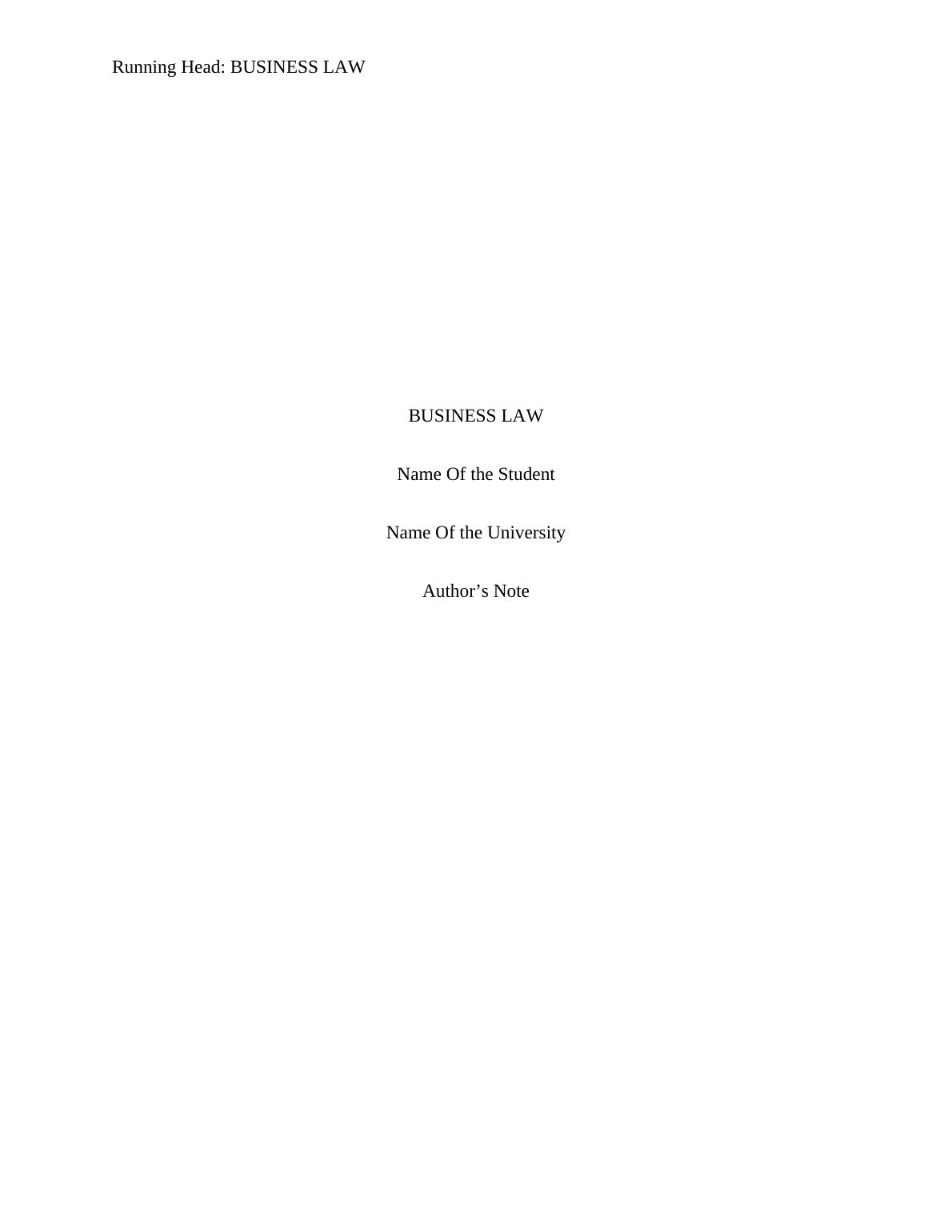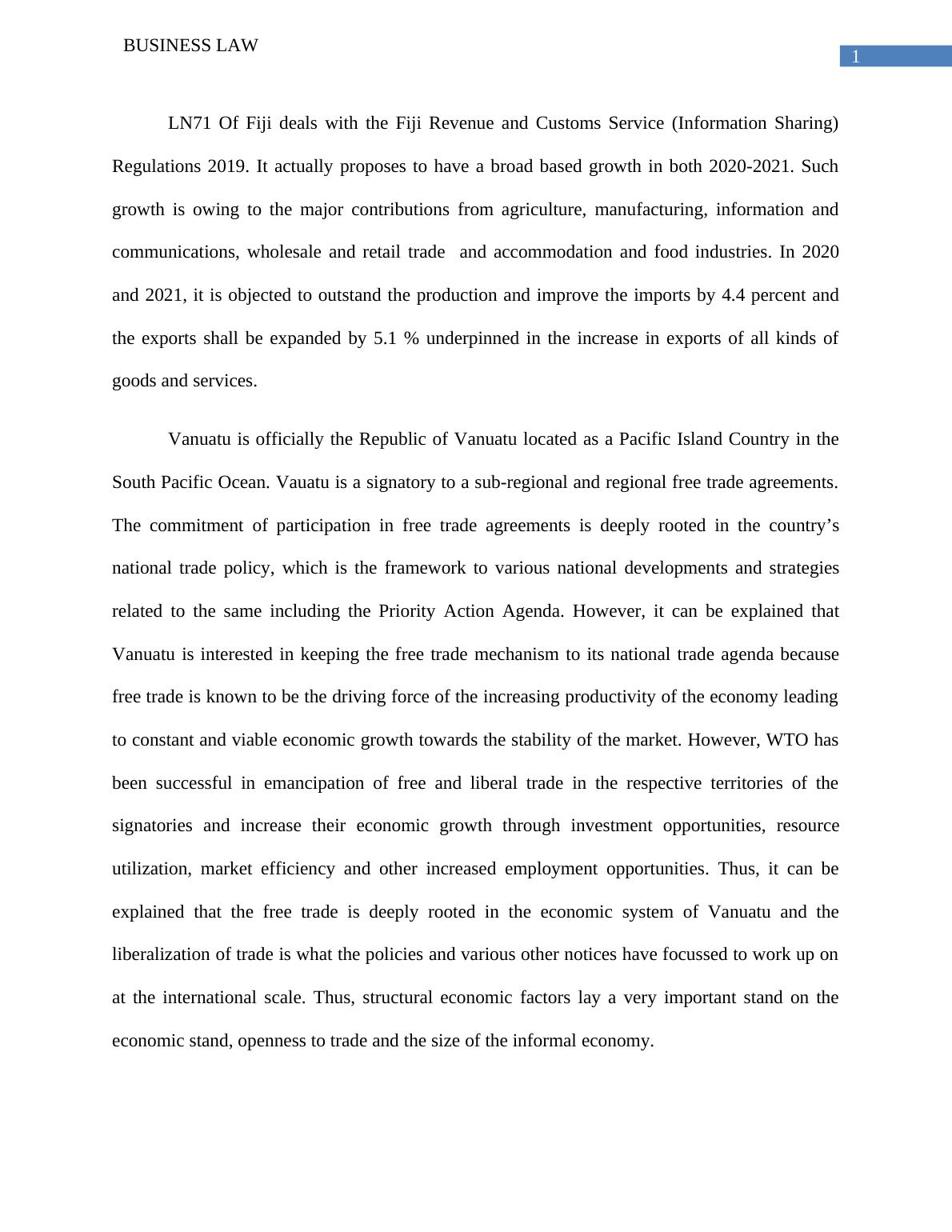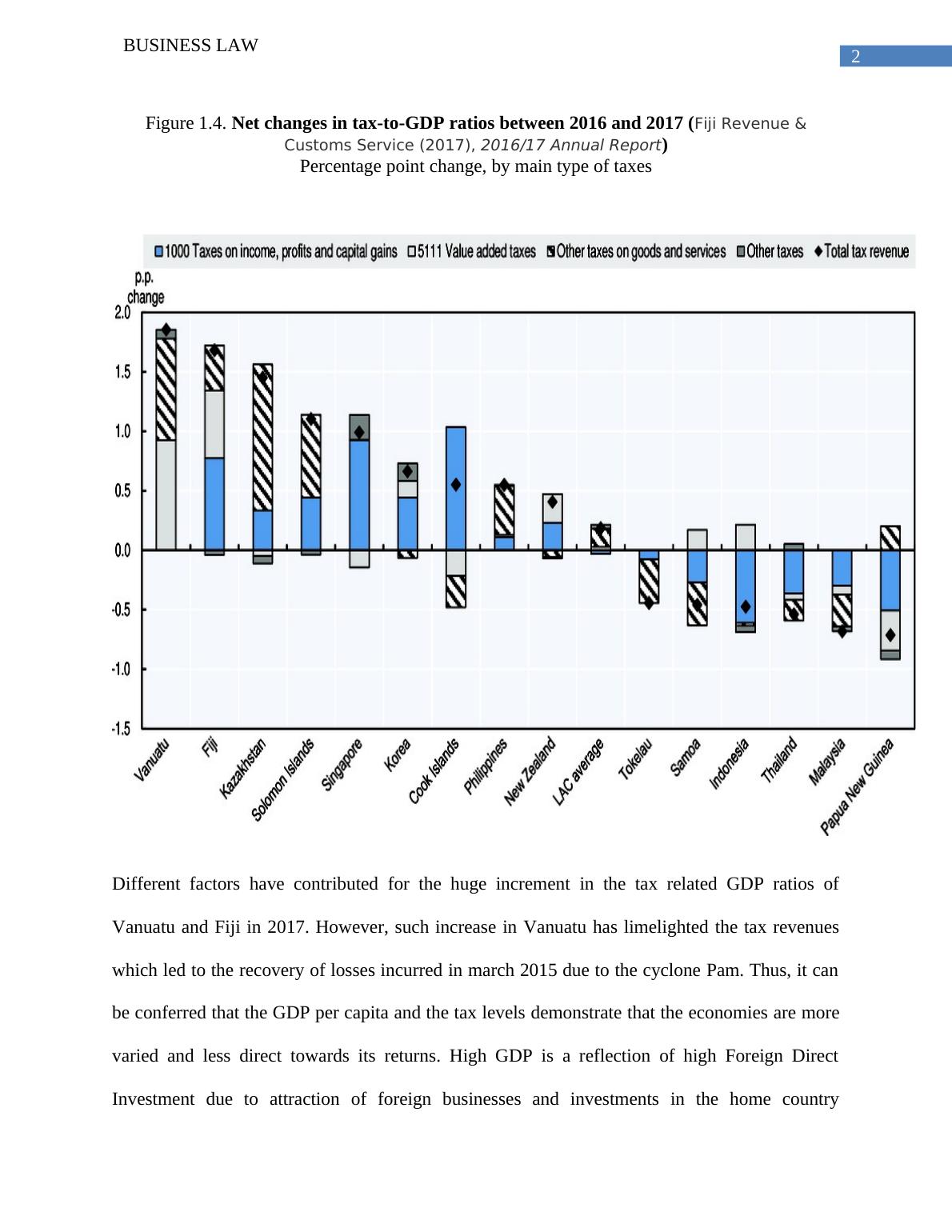Business Law and Trade Agreements: A Comparative Analysis of Fiji and Vanuatu
Added on 2022-12-12
7 Pages1436 Words289 Views
End of preview
Want to access all the pages? Upload your documents or become a member.
International Economics
|8
|2391
|31
International Trade between Australia and New Zealand
|29
|7550
|121
International Business- Reflective Journal
|4
|1068
|158
The Macroeconomic Environment of Australia and the Role of Fiscal Policy
|22
|3984
|2
Analysis of macroeconomics performance of Australia and USA
|13
|3071
|122
Comprehensive and Progressive Agreement for Trans Pacific Partnership (CPTPP)
|5
|932
|271



